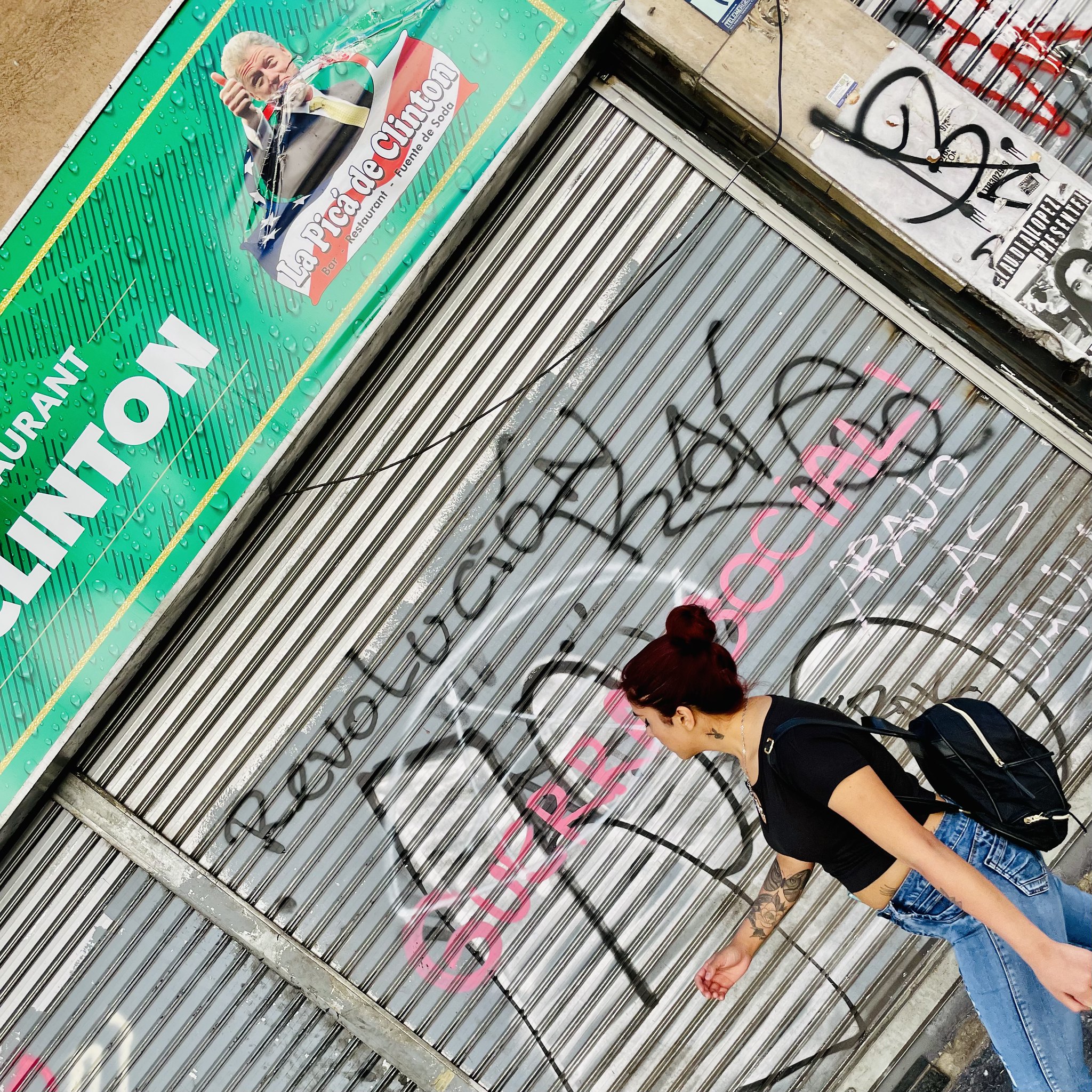A pacific sunset
We had planned the last stop on our trip to be Santiago, where we were expecting to spend the new year. Instead, an old friend got wind of our visit, and invited us to stay with them. In Santiago, but also in El Quisco, where she was going to spend the new year with her mom.
The chance for a wonderful reunion with a beautiful view was impossible to turn down. We were spending the new year on the shores of the Pacific.
It’s typically Valparaiso that is associated with the Chilean Nobel Prize winner Pablo Neruda, a diplomat and politician, a communist, and winner of the 1971 Nobel Prize in Literature. He indeed had a house in Valparaiso, but also in Santiago, as well as in the nearby El Quisco, where we were staying, a mere stone’s throw away from Neruda’s house.
Well respected both politically and literarily, more recently, Neruda has become a somewhat more controversial figure. Not unjustified, particularly in the light of a rape he confessed to in posthumously published memoirs.
Even if we can’t expect anyone to be flawless, the legacy of any individual is the amalgamation of their life’s work, both good and bad. To me, this should at least mean that the tours you can experience in his three houses, showing perhaps surprising wealt for a communist, which focus more on the man than on his literary work, should also feature his flaws.
At the moment, the way in which Neruda is characterised feels a bit too much like the telling of a hagiography, with Neruda being larger than life in every way. This kind of characterisation makes me highly suspicious, at best, and mistrustful, at worst. Recognising the negative sides of Neruda would certainly make Neruda more human, and could result in a deeper understanding of his work.
One of Neruda’s more well known poems is Walking Around a, mostly, narrative poem in which Neruda relates to himself, and his role in society, by reflecting on the world around him.
Neruda was a communist who put his money where his mouth was; In the late 1930s, while a diplomat, he facilitated the immigration, to Chile, of some 2000 refugees from Franco’s Spain. In 1948, the then-president of Chile outlawed communism and issued a warrant for Neruda’s arrest, though Neruda managed to escape to Argentina, returning after three years and, eventually, taking up the role of close advisor to Salvador Allende.
Given Neruda’s convictions as an individual, it’s easy to see Walking Around as an accusation against the commercialisation of society, against materialism, against industrial exploitation, even against the exploitation of capitalism.
But, also, the general feeling which the poem evokes is perhaps one of futility. That is, Neruda doesn’t seem to believe he can meaningfully fight against this pervasiveness of abuse, his individual actions being doomed to succeed on a societal level.
Neruda passed away of cancer shortly after the coup that ousted Allende and which installed Pinochet, heralding the age of neoliberalism and, eventually, the capitalist exploitation of the masses after the end of the Cold War, culminating in the record profits and stagnating salaries we see today.
Perhaps Neruda was right in recognising this futility.
On the other hand, on the first day of the new year, we saw the new president of Brazil be handed the presidential sash by a diverse group of Brazilians, representing the cultural and societal richness of not only this country, but the whole world. The sash went from pair of hands to pair of hands, until the last one in line hung the ribbon around the new president’s neck.
Lula’s electoral victory was perhaps uncomfortably narrow, but still meant that millions more voted for him, as opposed to the incumbent, something unprecedented in Brazilian history.
As during his previous two mandates, Lula will pursue a strong pro-poor agenda, and will complement this with policies of emancipation targeting the underrepresented in society, most notably the indigenous population, with one major feature the complete block on cutting down the Amazonian forest. Neruda would have felt strengthened in his convictions.
Our last night was spent in Santiago, of which I have fond memories, after having had to stay there for a while as a consequence of being deported from Brazil a bunch of years ago. We found it still a lovely city, if a bit quiet during the extra long weekend around the new year celebrations. But we also found seemingly much more poverty than the last time we visited.
On the up, walking around town, we stumbled upon a rap battle between rivalling rap gangs, and a very rowdy queer catwalk. And a vegan restaurant selling a meat- and dairy-free version of the seminal Chilean dish, chorrillana.

































